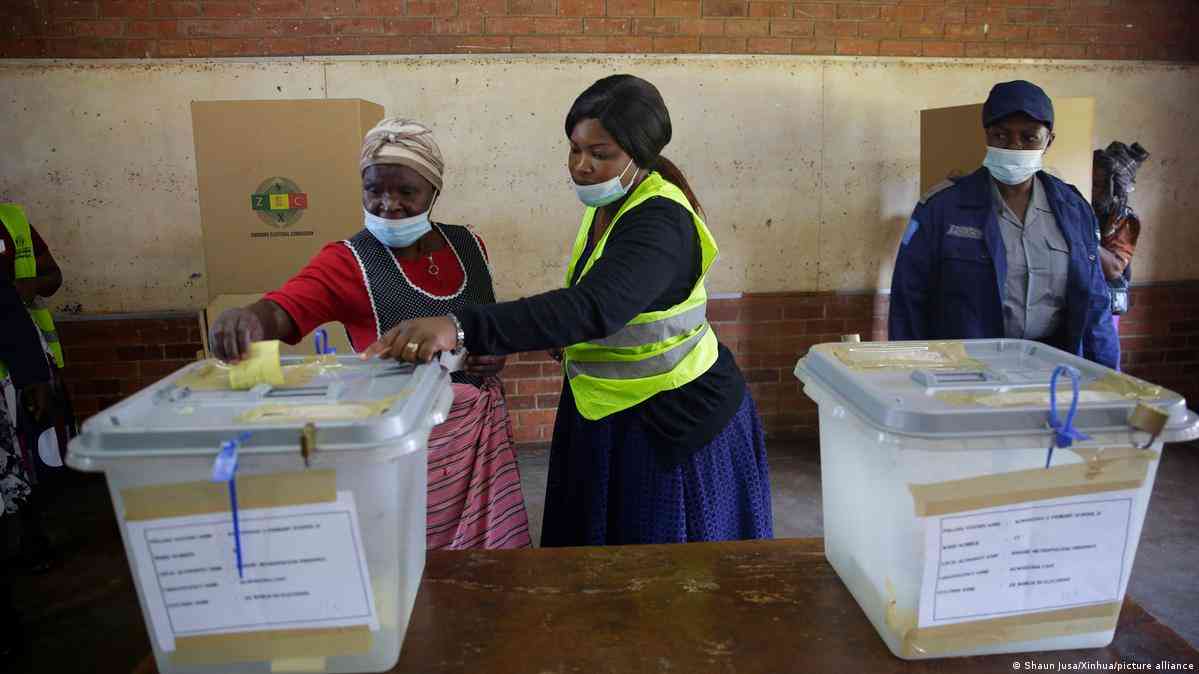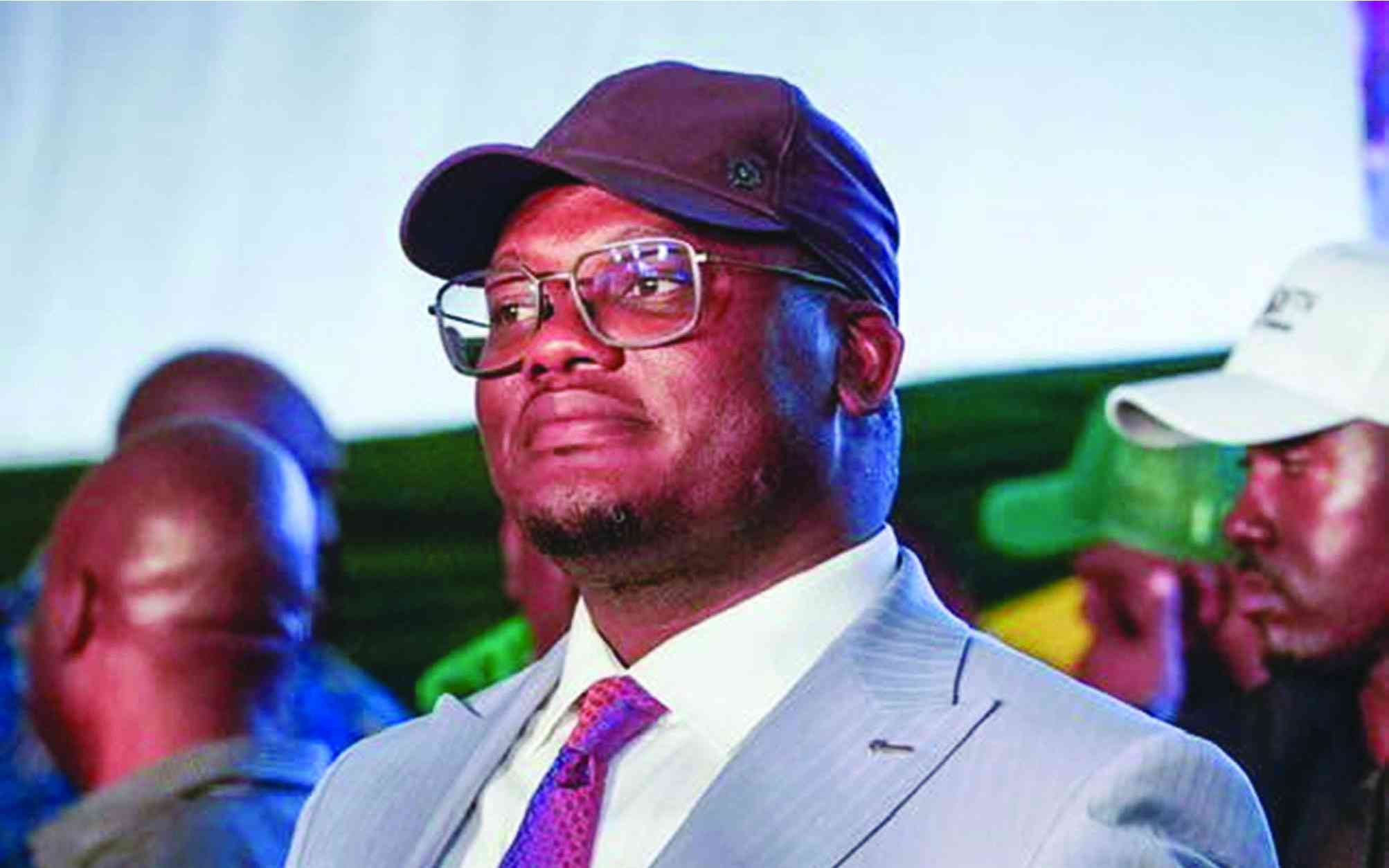
President Emmerson Mnangagwa is seeking yet another mandate at all costs by using all ‘crude’ means, according to an extensive report by the Crisis in Zimbabwe Coalition (CiCZ).
At his inauguration in 2017 after taking over power via a coup engineered by the military, Mnangagwa promised sweeping political and economic reforms.
Using the now tired ‘Zimbabwe is Open for Business’ slogan, Mnangagwa, who had been in the corridors of power as a minister and vice president in a Zanu PF government that had ruled Zimbabwe since 1980, projected himself as a leader who was keen to break from the past.
He had inherited Zanu PF’s legacy of authoritarian rule and economic misgovernance.
Six years later, Mnangagwa is employing the Zanu PF tactics which he promised to cast away as he promised to be reformist.
His campaign trail is marked by intimidation and political violence, use of the law and the judiciary to suppress opponents as well as the manipulation of electoral processes, critics and the opposition say.
Since January 2022, the CiCZ embarked on an assessment of the pre-election environment exposing how the electoral environment is tilted in favour of the ruling Zanu PF party.
The Coalition, in its report, concluded that the Wednesday election “has already seen a heavy assault on its credibility and integrity and will be held under worse conditions than the elections of 2018".
- New hope for ZEP permit holders
- Chikosi-Mapepeta joins international vocal coaches
- Upsurge in political violence cases worrying
- Nhamoinesu re-joins Czech giants Sparta Prague as a scout
Keep Reading
“This will likely perpetuate contested governmental legitimacy and further entrench Zimbabwe’s status as a pariah state, retarding rapid economic recovery and growth as well as inclusive and sustainable development as envisaged in the National Development Strategy,” the report says.
According to the Coalition, the pre-election environment has already proved that the Wednesday election does not pass the test of credibility based on a number of factors.
The Zimbabwe Electoral Commision (Zec), the Coalition concludes, ‘has been the biggest let-down in terms of its failure to be an impartial and fair arbiter in electoral contests in Zimbabwe.’
The operations of Zec, a body that should execute its election management role in a manner transparent to citizens and all electoral players, have been shrouded in controversy.
The August 23 elections will be held using a flawed delimitation process, which as noted by legal think-tank Veritas, fails a basic constitutional test.
The Coalition believes that Zec’s refusal to avail the latest record of the voters roll for the entire duration covered by this assessment is the ‘easily the biggest scandal’
“Up to this day, no-one save for Zec itself, and perhaps the Forever Associates Zimbabwe (FAZ) and Zanu PF, have an idea of the voters roll that will be used on 23 August,” CiCZ said
“Using its position as governing party, and its conflation with the state which is the main arbiter of economic spaces and opportunities, Zanu PF continues to use the threat to suppress livelihoods opportunities in lieu of citizens supporting it.
“This factor is critical in the sense of how it extends across various economic spaces – from access to opportunities in the mining sector, the agricultural sector, including who gets access to land and enablers for production; to who gets access to favourable markets, especially as part of state interventions in agriculture; to who gets access to a tiny vending stall/space in the bustling Mupedznhamo Flea Market or the Siyaso Industry Complex in Mbare; Jahunda Market in Gwanda; or Sakubva Market in Mutare.”
Previous election observer mission (EOMs) reports from both the AU and Sadc in 2013 and 2018, have flagged the timely release of the voters roll as an issue that undermines the integrity of any election.
“One of the major shortcomings of the Zec has been its failure to lead the drafting and implementation of a code of conduct for electoral stakeholders, as a foundation for strengthening its own obligated oversight over the entire electoral process,” the CiCZ noted.
In addition to this, red flags have been raised over familial relationships of key Zec commissioners and ruling party elites.
Family members linked to Zanu PF vice president Kembo Mohadi, Zanu PF’s secretary general Obert Mpofu, Information minister secretary Nick Mangwana as well as Foreign Affairs and International Trade minister Frederick Shava are all part of Zec’s key administrative layer.
“When taken together with long-standing staffing issues of Zec chiefly the control of its internal processes by former and serving officers from the army, this casts serious aspersions on Zec’s ability to conduct an election free from undue influence and easily avoidable controversy,” reads the Coalition’s assessment.
Mnangagwa also stands accused of railroading amendments to the constitution to give himself more power over the judiciary and Parliament.
In 2020, the late constitutional law expert Alex Magaisa warned of the potential and dangers of ‘judicial capture’.
The enactment of Constitutional Amendment Number 2 in 2021 has previously been identified as having spelt the death of judicial independence.
According to Advocate Wilbert Mandinde, the Acting Director of the Zimbabwe Human Rights NGO Forum, the amendment of the constitution in 2020 was part of the beginning of the end of judicial independence.
The victimisation of judges, such as the case of former judge Erica Ndewere for allegedly ‘mishandling’ cases involving high profile political persons has cast further aspersions on the independence of the judiciary.
The Coalition cited a number of cases that prove judicial capture, among them, the handling of cases brought to the courts by the opposition including such as the one by MDC alliance leader, Douglas Mwonzora, on Zec’s delimitation report and its outcome.
“The report has previously been shown to breach constitutional provisions, meaning that an election held within the ambit of the delimitation outcome can be challenged constitutionally,” the Coalition wrote.
“The numerous cases brought to the courts by aspiring independent presidential candidate Saviour Kasukuwere who has since been barred from contesting in the August 2023 polls, have in many ways exposed the compromised nature of the both the judiciary and the election management body, Zec
“The case of the 17 CCC double candidates is yet another case which highlights and affirms possible judicial capture and a clear instance in which the judiciary has overreached its prescribed mandate and clearly acting as an accessory of the ruling party.”
The case of CCC member Job Sikhala who has been in remand prison for over a year, has been well documented as a classic case of manipulation of the judiciary to settle political scores against opposition party officials, members and activists.
Mnangagwa’s administration has, in contrast to his pledge to respect the people’s right to freedom of information, continued to preside over a partisan state media, the CiCZ said.
The state-controlled Zimbabwe Broadcasting Corporation has openly shown its bias towards the ruling party, with all signs from its actions pointing to its apparent capture.
Critics have said the state-controlled media has been acting more as part of the Zanu PF party’s communication machinery than as an independent and impartial public broadcaster.
“Given the importance of the media to the public sphere — where citizens have an opportunity to have deliberations and make decisions for society — unequal media access comes at a heavy detriment to electoral integrity which eventually affects overall national development prospects,” CiCZ said.
To deal with these challenges, the Coalition propsoed a number of solutions to Zimbabwe’s crisis.
“It remains our very strong belief that without a substantive national dialogue process, towards meaningful and sustainable reforms, supported by the region and international partners, elections in Zimbabwe will remain contested, and undermine the legitimacy of the winners.
“This will continue to retard Zimbabwe’s prospects for recovery, economic and democratic development.
“Essentially, Zimbabwe requires the assistance of the region and other international stakeholders to begin a process of inclusive national dialogue among stakeholders including political parties, civil society and business towards sustainable reforms that can return Zimbabwe to norm compliance with democratic governance, which we believe is key to supporting a genuinely credible election.”
“So, while the election will likely go ahead on August 23, we remain firmly convinced that a genuine discussion on the “morning after” the elections, that takes into account these realities, is what we must all be seized with. “










